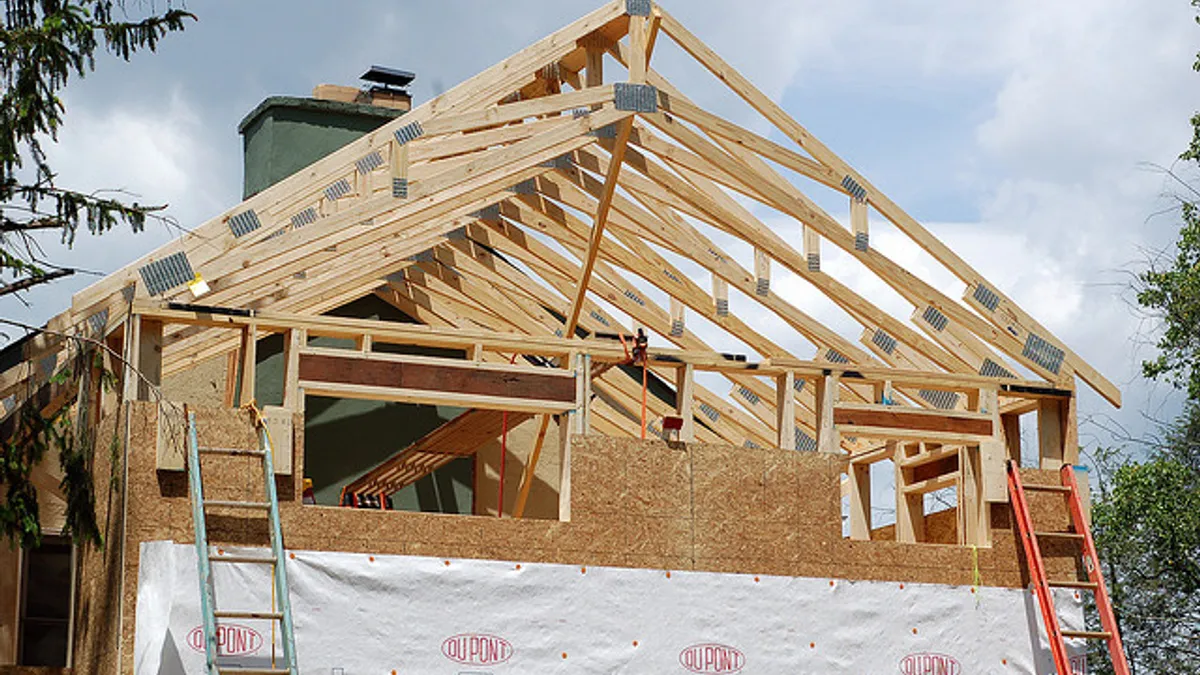Dive Brief:
-
Construction material prices rose 0.3% between August and September, and they are 0.1% higher than September 2015, according to an Associated Builders and Contractors analysis of Bureau of Labor Statistics data released Friday.
-
September marked the first month since November 2014 that nonresidential construction input prices were up on a year-over-year basis.
- Four of 11 input prices dipped between August and September: prepared asphalt and tar roofing and siding products; iron and steel; steel mill products; and softwood lumber. The remaining seven material prices rose last month.
Dive Insight:
ABC Chief Economist Anirban Basu said the month-to-month and year-over-year rise in prices "is not good news for U.S. nonresidential construction firms." He attributed the rebound in prices to stabilized energy prices and what he considers wage inflation in the U.S.
In additional bad news for construction firms, Basu said contractor margins are tightening as rising labor and material costs leave firms struggling to make a profit. Prior to the Great Recession, contractors could transfer higher material costs to owners and clients, but "purchasers of construction services are now much less likely to accept significant cost inflation," he said in a release.
The skilled labor shortage is an ongoing concern for the construction industry, as employers continue to struggle to find qualified workers and meet demand. A nationwide survey of 1,459 contractors — conducted by the Associated General Contractors of America during July and August — found that 69% are having difficulty finding workers to fill hourly craft positions. To combat the problem, 48% of surveyed companies said they have increased pay for hourly craft workers — echoing reports of rising labor costs.
On a positive note, Basu predicted that despite the potential for a steady climb, material prices won't see a major surge in the coming months due to the strengthening U.S. dollar.
Friday's materials price data coincides with a recent report from the ABC that found its Construction Confidence Index for the first half of 2016 fell slightly from the second half of 2015. Negative factors including the labor shortage and rising material prices were cited as contributing to the dip in confidence.












